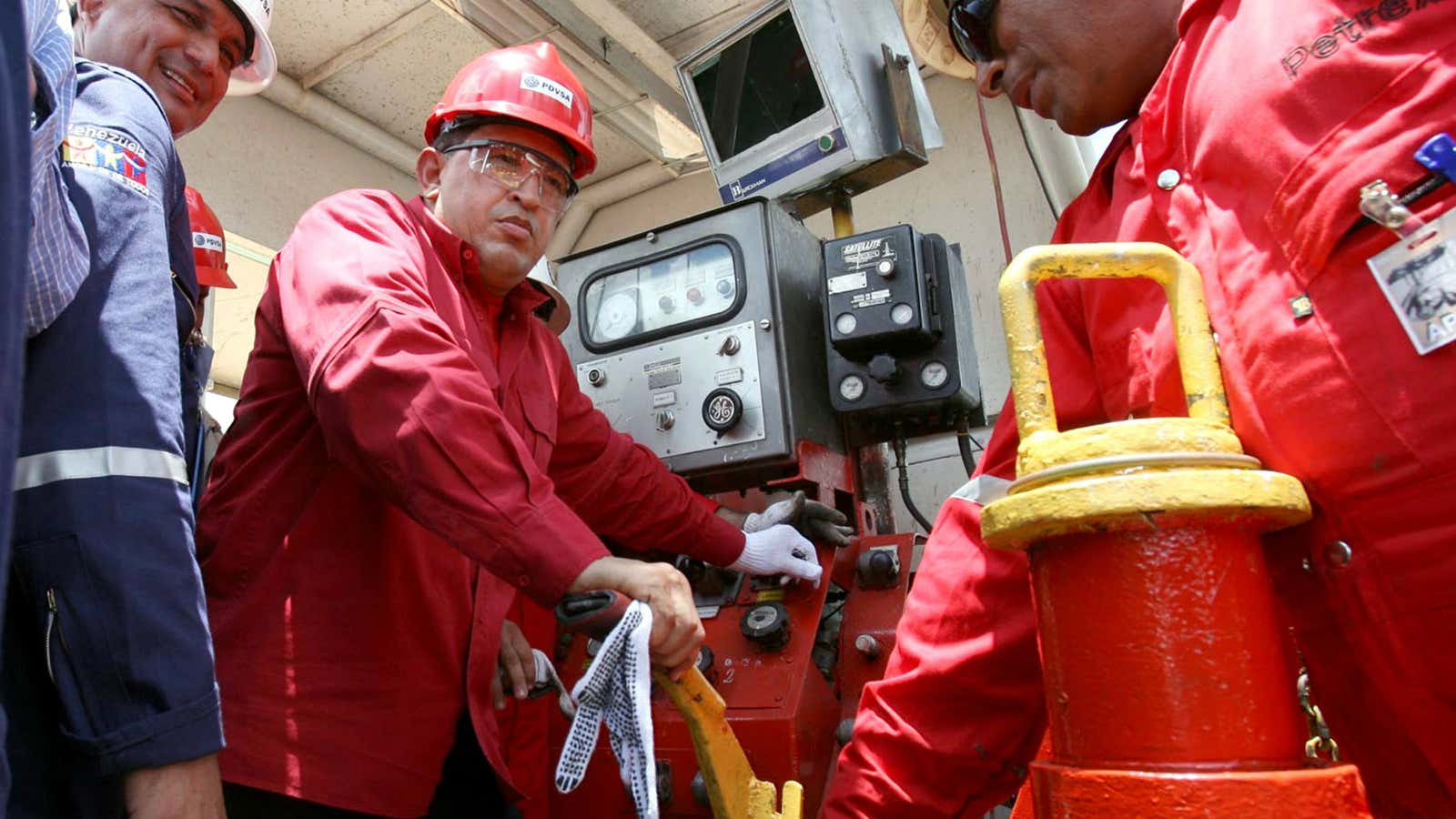With a bold, sometimes ribald and buffoonish style, all of it aimed at the poorest of Venezuela’s population, Hugo Chávez cast an outsized shadow over his region’s politics. But all of it would have been impossible absent the potency of petroleum—Venezuela’s possession of the world’s largest reserves of crude oil.
Now, the world’s major oil companies—many of them having been expropriated in recent years—will be watching for whether the country’s new leader will restore Venezuela’s long-declining oil industry. A different Venezuelan policy could result in big oil deals, and a new surge of petroleum onto the global market. Much will depend on who wins the succession battle.
In carrying out what he called the Bolivarian revolution, Chávez relied on tens of millions of dollars siphoned from the state oil company, known by its acronym, PDVSA. He sent tens of millions of barrels to Cuba to help out his friends the Castros, and supported opposition movements in neighboring countries. When PDVSA management and workers defied his wishes in 2002-03, he fired 19,000 of them, which crippled the company and led to a long decline in the country’s oil production.
Global oil companies have adopted varying strategies for dealing with Chávez. Among the companies that chose to leave rather than submit to Chávez’s nationalization policy are ExxonMobil. When it sought $12 billion in damages, an arbitration judge ordered Venezuela to pay just $255 million, which Chávez proclaimed as a victory. Meanwhile, China has put down a heavy footprint in the country with big oil-for-loans deals.
The big attraction in the country is the Orinoco Belt, an enormous band of ultra-heavy petroleum. In 2009, OPEC re-evaluated the belt, and increased the country’s official oil reserves to 297 billion barrels, surpassing Saudi Arabia’s 265 billion barrels of proven reserves.
Because of Chávez’s penchant for nationalization, the majors have been leery about new investment. Yet a new government could decide to take a U-turn on oil policy, says José Cárdenas, a former adviser to the US State Department and now a senior adviser to Vision Americas, a consultant firm.
The outcome depends on who succeeds Chávez, he said. The leading candidates among Chávez’s supporters are vice president Nicolás Maduro, who is close to Cuba, and Diosdado Cabello, president of the national assembly. Though the country’s military chiefs appeared on television to pledge loyalty to Maduro today, analysts believe them to be Cabello’s power base.
“If [the new president is one of] the Havana-supported ideologues like Maduro and his wing, then the future of PDVSA is likely to remain murky,” Cárdenas said. “However, if the nationalist wing of the military led by Cabello wins out, I think there is every opportunity for the rebuilding of the oil sector with Western investment and companies in the lead.”
Alternatively, if a clean election is held, the winner could be Henrique Capriles, governor of Miranda state, whom Chávez defeated in last October’s election. As president, Capriles would still face a chavista national assembly, and strong popular support for a national oil industry, which would rule out any radical reforms to PDVSA itself. But he has said he wants to increase oil production and invite more foreign investment, and would likely renegotiate the preferential deals Venezuela has with countries like Cuba and China.




